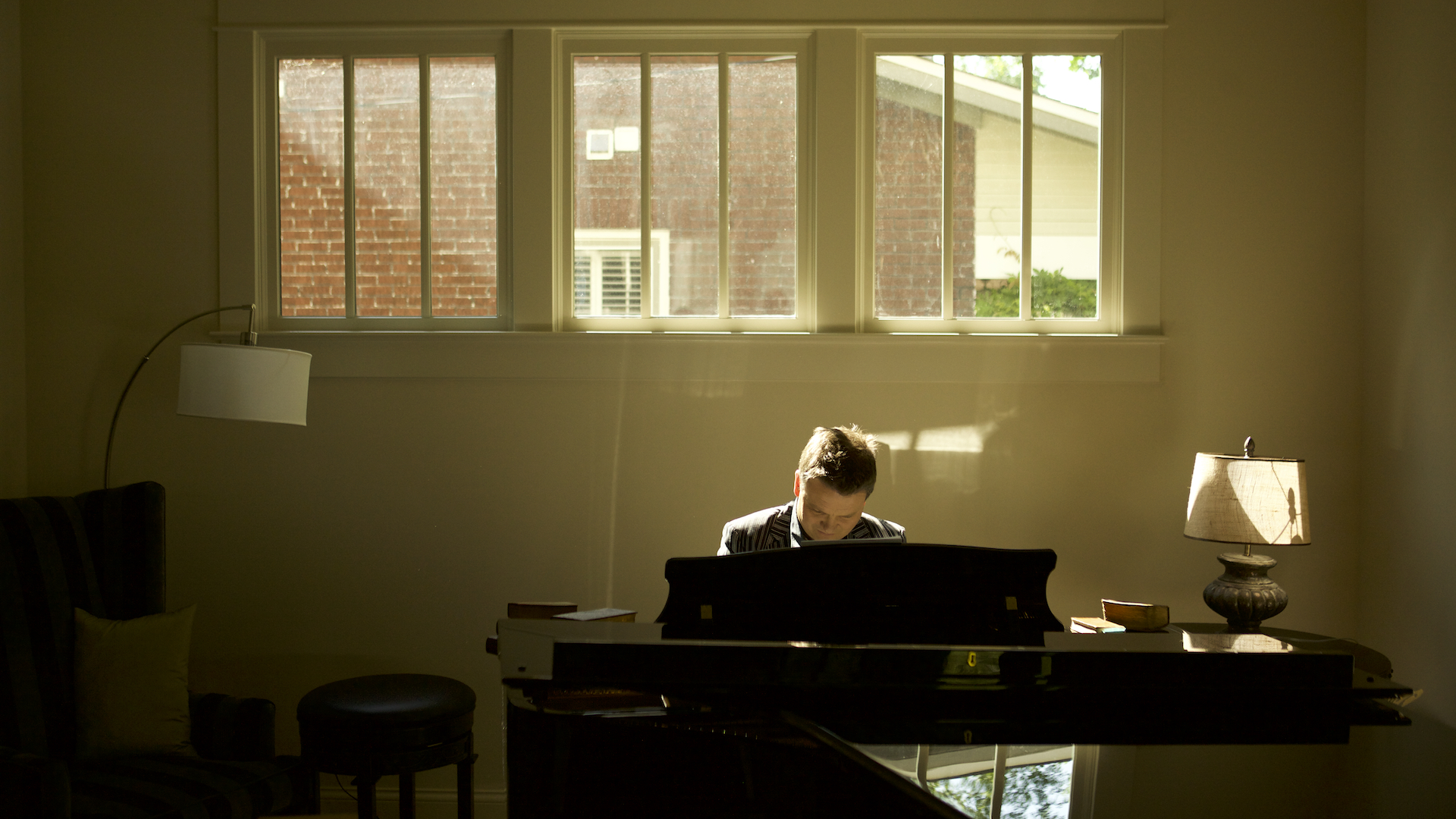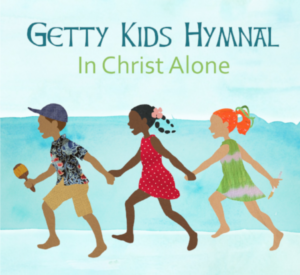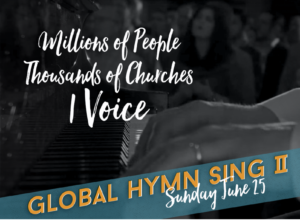
For the cause of Christ the King we give our lives an offering—
‘til all the earth resounds with ceaseless praise to the Son.
For the cause of Christ we go with joy to reap, with faith to sow—
as many see and many put their trust in the Son.
Christ we proclaim, the name above every name.
For all creation, ev’ry nation, God’s salvation through the Son.
So begins “For the Cause,” a modern hymn written by Keith and Kristyn Getty that trumpets the call of Christ to go to all peoples with the glorious news of his gospel. You may know the Gettys for “In Christ Alone,” a beautiful hymn Keith penned with Stuart Townend in the year 2000 and the church has been singing ever since. They’ve written much more, some of which ties directly to the missionary activity of the church. Last week at the SBC Annual Meeting in Phoenix, I was privileged to sit down with Keith for a while and talk about the intersection of worship and missions.
Now, Keith could talk incessantly about this topic, so only a bit of it will fit here, but maybe more will come . . . Here’s how part of that interview went:
The Gettys have been writing hymns together for about seventeen years now, but there’s been a bit of a shift of late—a particular emphasis on the intersection of worship and mission. Could you address that shift?
KG: Sure. Well, obviously we’ve been trying to write songs that explain the gospel in beautiful ways. And over the years, of the hymns we’ve written that were commissioned for a specific occasion, almost all were tied in with significant missional events. One such event involved rewriting an old hymn, “Facing a Task Unfinished,” for our friends at OMF. The backstory of the hymn (which can be read here) is so powerful, but we felt it needed a binding response. So we added a chorus to that end.
That experience was a real turning point, and we decided to write a project of missional hymns, believing that we could sing songs that propel us to mission. From there, we wrote “For The Cause” for our good friends at Southeastern Seminary, which was followed by a kids album to encourage children to sing of the mission as well. We’ve really taken a year and a half to think well about the subject and try very hard to write songs that might be good for churches to sing.
You reference worship and music in general as a way to disciple people into a certain belief and corresponding activity. How is corporate worship through song a tool that ultimately accomplishes that goal?
KG: I think we have to remember that early in the Old Testament, Moses was commanded by God to teach the Hebrews through hymns (e.g. Deut. 31:19). “Teach this to your children, that it will be a witness against them lest they turn away,” he said. In other words, what you sing doesn’t just affect how you think or how you feel or how you pray. It is presumed that singing will affect how you live your life. In fact, 20 percent of the Bible is songs. We learn from the Word of God that we’re created to sing.
“What you sing doesn’t just affect how you think or how you feel or how you pray. It is presumed that singing will affect how you live your life.”
To take that another step further, most Christians probably know more verses of Scripture through singing them than by studying them. That’s not because we’re bad and we don’t study. It’s because we’re fearfully and wonderfully made. This is how God made us.
So, for someone like me who wasn’t gifted in the same ways as my friends who are pastors, discipleship through music uses the gifts that I do have. Every so often, I write a tune that’s memorable and helps let the Word of Christ dwell richly in people as they meet together and sing psalms and hymns and spiritual songs.
You’ve just completed a new hymn project just for kids. Why was it important for you to create a hymnal, as it were, specifically for children?
KG: We’ve thought about this a lot and started recording kids songs a couple of years ago. I’d like to tell you it was because my wife and I are the most spiritual parents to ever live, but it really wasn’t. Actually, we were snapped into it by a really embarrassing moment.
We were in New Jersey to perform a concert, and a church requested that we join them that morning to hear their school children sing our hymns because they teach the kids the Bible through teaching them one of our hymns each month. It was really fascinating and quite humbling. So we went along to see them perform the songs.
 Of course, our four-year-old daughter at the time had flaming red hair and was an extrovert and wanted to join in. She got into the middle of the group, and they all started singing “In Christ Alone.” Of course, there was only one kid that didn’t know all the words—our daughter—and there was nowhere for us to hide.
Of course, our four-year-old daughter at the time had flaming red hair and was an extrovert and wanted to join in. She got into the middle of the group, and they all started singing “In Christ Alone.” Of course, there was only one kid that didn’t know all the words—our daughter—and there was nowhere for us to hide.
The truth was, for us, the moment had come. All parents face that moment when they have to decide to start teaching their kids the hymns of our faith. New England Puritans did not allow men to take the Lord’s Supper on Sunday if they did not pray, sing, and read the Bible with their children during the week because they believed those fathers to have neglected their primary duty. Now, that is probably a bit of an overreach of church authority, to be honest, but the point is well taken.
So, we wanted to start teaching our children to sing. We want them to understand and share their faith, to grow up with a confidence in the gospel and an imagination that is excited by the gospel. We want it to be natural to express the gospel in the midst of a society that will tell them (a) Christianity is unbelievable, (b) it’s antisocial, and (c) you must never talk about it. Worship songs teach them the opposite and can infuse them with truth that helps them counter that flow.
What is your favorite song in the new kids hymnal project?
KG: Well, we’ve done some really fun things, so that’s not an easy answer. “All Hail the Power of Jesus’ Name” is a favorite hymn of mine. It was written by a missionary to India, so we got a kids choir from Mumbai to sing it in Hindi. We brought together kids from five continents to sing “For The Cause” and “Facing a Task Unfinished.” We put the African Children’s Choir together with Ladysmith Black Mambazo for “O Children Come,” which is something we’ve always wanted to do. The whole album is meant to sing to the Lord in sixteen languages with kids.
We’ve always said there are three goals for the kids albums. The first is to teach them the Bible and help them understand the gospel. The second is to get them excited about singing. The third is to help them extend their imaginations and creativity, and think about what is happening in the arts and culture around them.
“We want it to be natural to express the gospel in the midst of a society that will tell them (a) Christianity is unbelievable, (b) it’s antisocial, and (c) you must never talk about it.”
All that said, being parents, we included our own little daughters on the album in a setting of John 3:16. They read and sang the passage. Because of the content and the beauty of the song, nepotism aside (maybe), it is my favorite track on the album.
One final question: You have two huge upcoming events. Can you tell us about the Global Hymn Sing and the Sing! conference?
KG: The Global Hymn Sing was really where this all started. Last January, we hosted the first one based on the idea of getting people to sing about mission and to promote “Facing a Task Unfinished.” We held it as a fundraiser, because all of the royalties for this song are going to mission in East Asia. It’s a really exciting thing.
 People got so excited about it that we are doing it again Sunday, June 25, to promote “For The Cause.” I think 1.4 million people took part in it last year, which I still can’t quite get my head around. Every church who took part in it learned the hymns we’re excited about, though, and they’ve all begun to ask for more missional hymns, which is great. We’d love to see the number grow this year, and people can add their churches to the map on the website and see just how many other churches will be singing along with them that Sunday.
People got so excited about it that we are doing it again Sunday, June 25, to promote “For The Cause.” I think 1.4 million people took part in it last year, which I still can’t quite get my head around. Every church who took part in it learned the hymns we’re excited about, though, and they’ve all begun to ask for more missional hymns, which is great. We’d love to see the number grow this year, and people can add their churches to the map on the website and see just how many other churches will be singing along with them that Sunday.
The idea for the Sing! conference sprung out of a book we’ve been writing for  congregational members—not leaders—about singing. It’s about why we sing and what happens when we do. Many of our friends inspired the content of the book, so we’ve invited them together to talk about it. David Platt and Joni Erickson Tada will both be joining us, along with others.
congregational members—not leaders—about singing. It’s about why we sing and what happens when we do. Many of our friends inspired the content of the book, so we’ve invited them together to talk about it. David Platt and Joni Erickson Tada will both be joining us, along with others.
The exciting and problematic thing is that the conference has sold out twice now, but we are working to open up more overflow space, if possible.
Final Thoughts
I am thankful for songwriters and musicians who are thoughtfully crafting hymns that tell the gospel story, challenge us to think theologically, and press us to respond accordingly. If you’d like to be a part of more conversation around these topics, check out the Sing! conference. There may be remaining overflow seating, and there will be a livestream if you cannot make it there. If you want to teach these things to your children, the Getty Kids Hymnal is a great place to begin.

